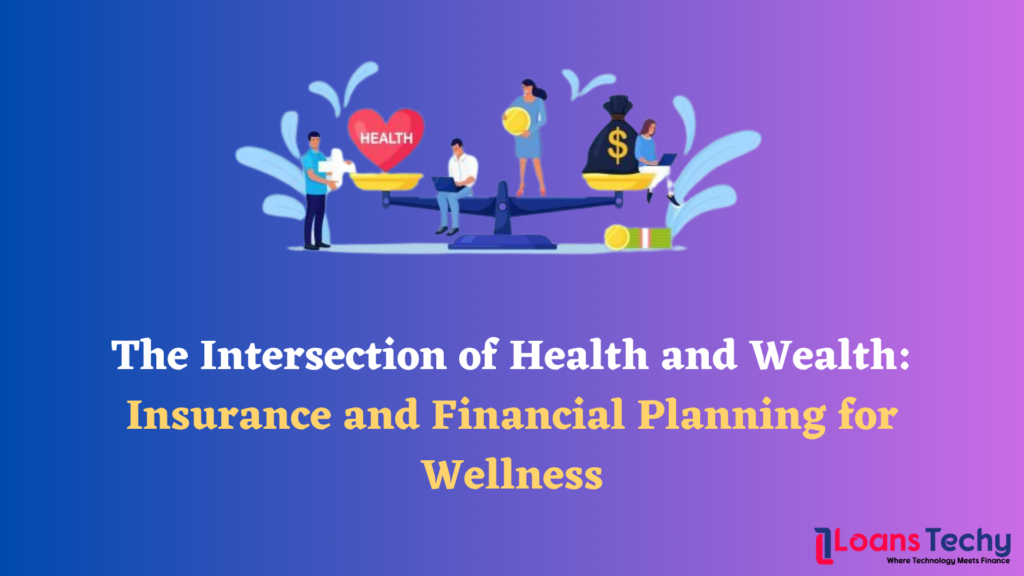In the whirlwind of modern life, where every turn introduces a new health fad or financial trend, finding equilibrium between maintaining good health and securing financial stability can feel like a daunting task. However, delving into the intricate relationship between insurance and financial planning reveals how these two pillars can harmoniously support both physical well-being and financial security. This comprehensive exploration aims to demystify the intersection of health and wealth, shedding light on how insurance and astute financial planning can pave the way to a healthier and financially stable future.

Understanding the Basics of Health Insurance
Health insurance stands as a formidable shield against the potentially ruinous costs of medical care. From routine check-ups to unexpected emergencies, health insurance provides essential financial protection, ensuring individuals can access necessary healthcare without fear of exorbitant bills. Policies vary widely, ranging from basic plans covering essential services to comprehensive packages encompassing dental care, mental health services, and more.
Choosing the right health insurance plan demands careful consideration of factors like premiums, deductibles, and coverage limits, ensuring that personal healthcare needs align seamlessly with financial capabilities. Navigating this landscape may initially seem akin to searching for a needle in a haystack, but the effort invested in selecting the ideal plan promises invaluable peace of mind when life throws an unexpected curveball.
Financial Planning: Building Blocks for a Secure Future
Beyond day-to-day budgeting and saving, comprehensive financial planning constitutes a strategic framework for achieving long-term financial goals while safeguarding against unforeseen economic challenges. At its core, effective financial planning entails meticulous management of income, expenses, investments, and savings, all tailored to suit individual circumstances and aspirations. By proactively planning for future financial needs and emergencies, individuals can cultivate resilience against financial shocks, thereby fortifying their overall financial health. Think of financial planning not merely as a series of restrictive measures, but rather as a liberating roadmap to financial freedom—a blueprint for making informed decisions that nurture both financial security and personal well-being.
The Role of Insurance in Financial Planning
Insurance assumes a pivotal role within the realm of financial planning by mitigating risks that could otherwise derail financial aspirations. In addition to health insurance, which safeguards against medical expenses, other types of insurance—including life insurance, disability insurance, and long-term care insurance—provide supplementary layers of protection against unforeseen adversities. These policies serve as crucial safety nets, ensuring financial stability in scenarios ranging from illness and disability to the unfortunate event of a loved one’s passing. While discussions on insurance may not necessarily evoke excitement, akin to discussing one’s favorite pastime, these protective measures are akin to a safety net while walking a tightrope—essential for preserving peace of mind amidst life’s unpredictable circumstances.
Navigating the Complexities: Integrating Health and Wealth
The convergence of health and wealth management necessitates a holistic approach, wherein lifestyle choices profoundly impact both physical well-being and financial health. Maintaining a healthy lifestyle not only promotes longevity and well-being but also mitigates healthcare costs over time. Conversely, sound financial decisions—such as prudent investments and strategic savings—enable individuals to allocate resources towards superior healthcare options when needed, thereby fostering a symbiotic relationship between health and wealth. In essence, the pursuit of optimal health and financial stability is akin to striking two birds with a single stone—simultaneously enhancing physical well-being and fortifying economic resilience.
Also Read This Article:
Catastrophe Bonds: An Investment Tied to Insurance Risks
Common Questions About Health and Wealth
Q: Why is health insurance important even if I’m young and healthy?
A: Health insurance serves not only to cover unexpected medical emergencies but also provides access to preventive care, ensuring early detection and intervention for potential health issues.
Q: How does financial planning help manage healthcare costs?
A: Effective financial planning includes provisions for healthcare expenses, such as savings earmarked for deductibles, co-pays, and treatments not covered by insurance, thereby mitigating the financial burden of medical care.
Q: What factors should I consider when selecting a health insurance plan?
A: When choosing a health insurance plan, it’s essential to evaluate factors like network coverage, premium costs, deductibles, and coverage limits to ensure alignment with personal healthcare needs and financial capabilities.
Q: Is it worthwhile to invest in additional insurance policies like life or disability insurance?
A: Yes, additional insurance policies—such as life insurance and disability insurance—provide financial protection against unforeseen events like illness, disability, or death, safeguarding the financial well-being of oneself and loved ones.
Conclusion: Striking a Balance for a Brighter Future
The intersection of health and wealth represents a critical nexus where prudent decisions regarding insurance and financial planning converge to shape a resilient and prosperous future. By comprehending the dynamic interplay between these essential components, individuals can empower themselves to make informed choices that safeguard both their physical well-being and financial security. Investing in health and wealth management transcends mere monetary considerations—it epitomizes an investment in a happier, healthier life enriched by financial stability.







0 Comments